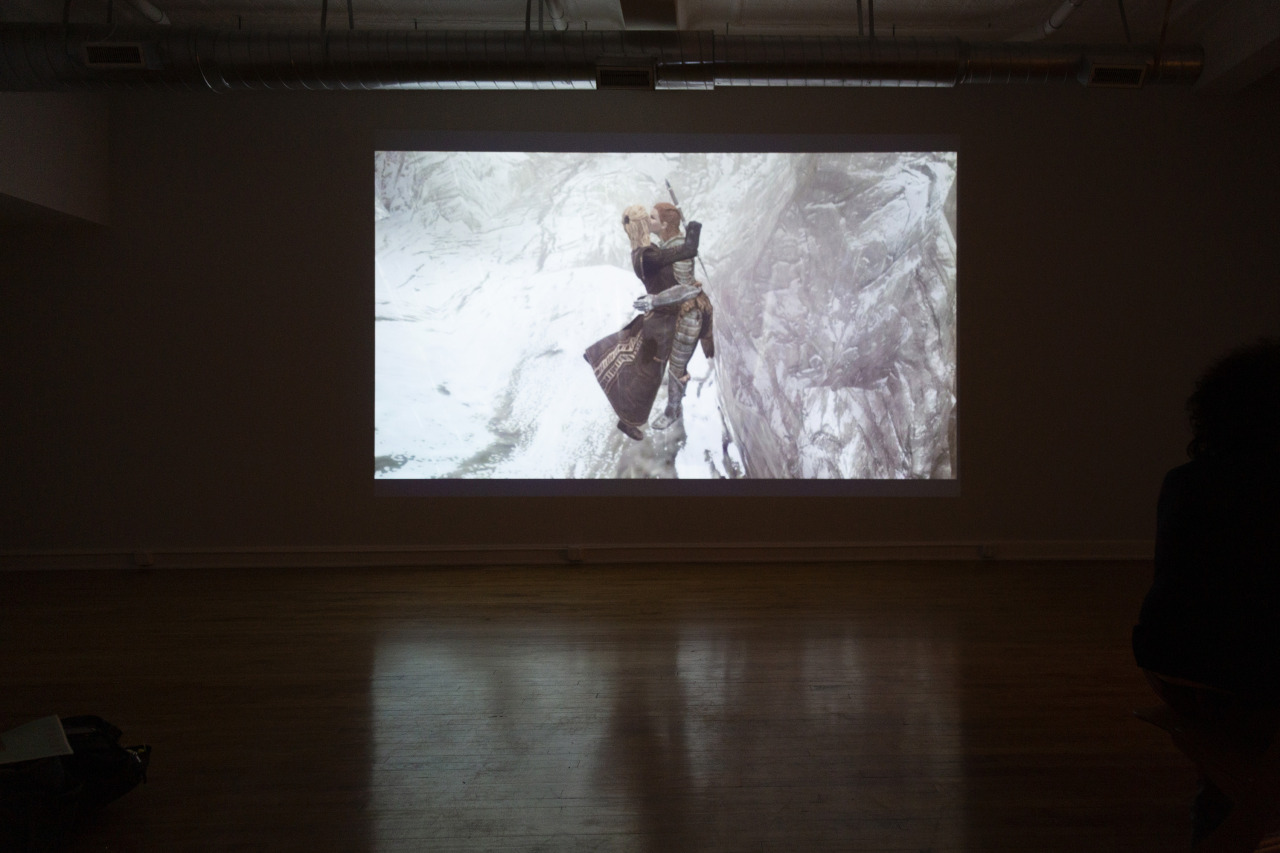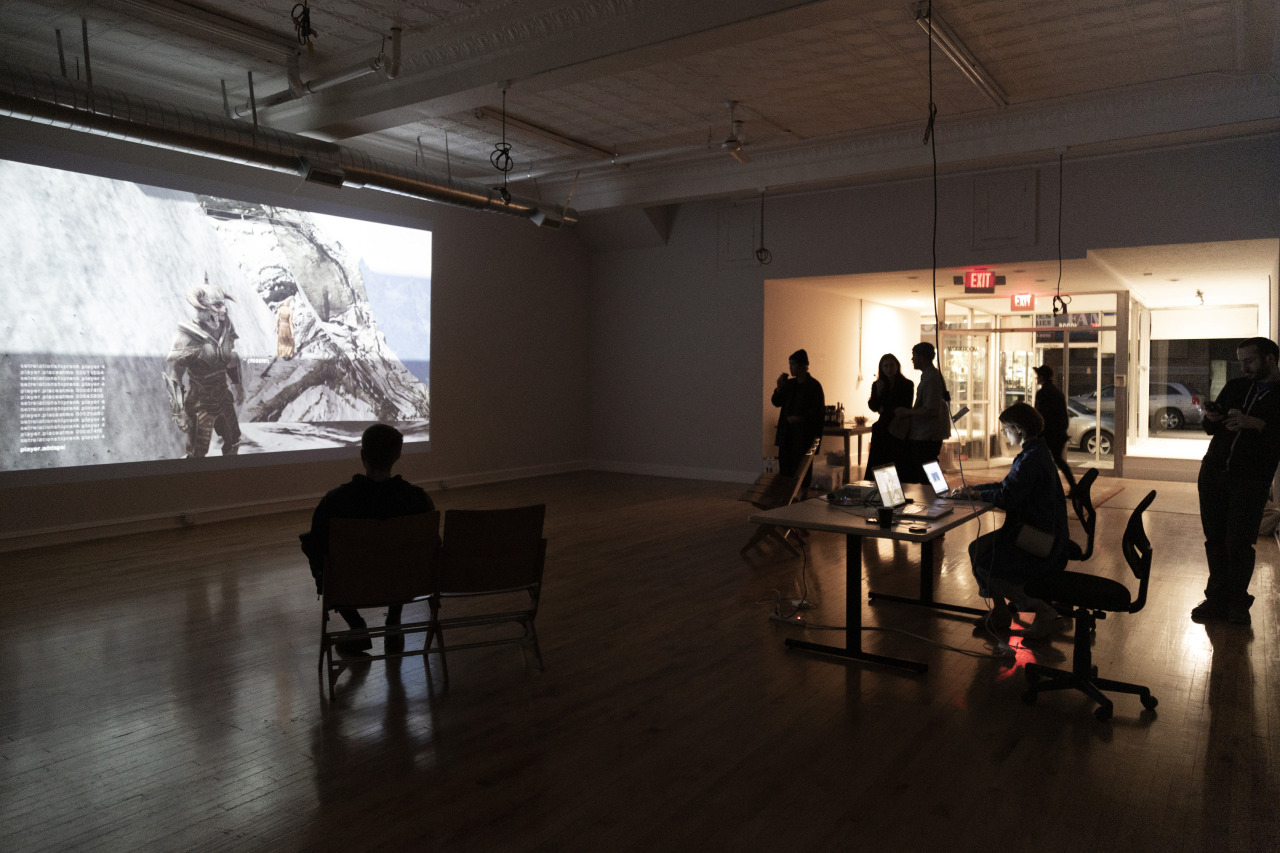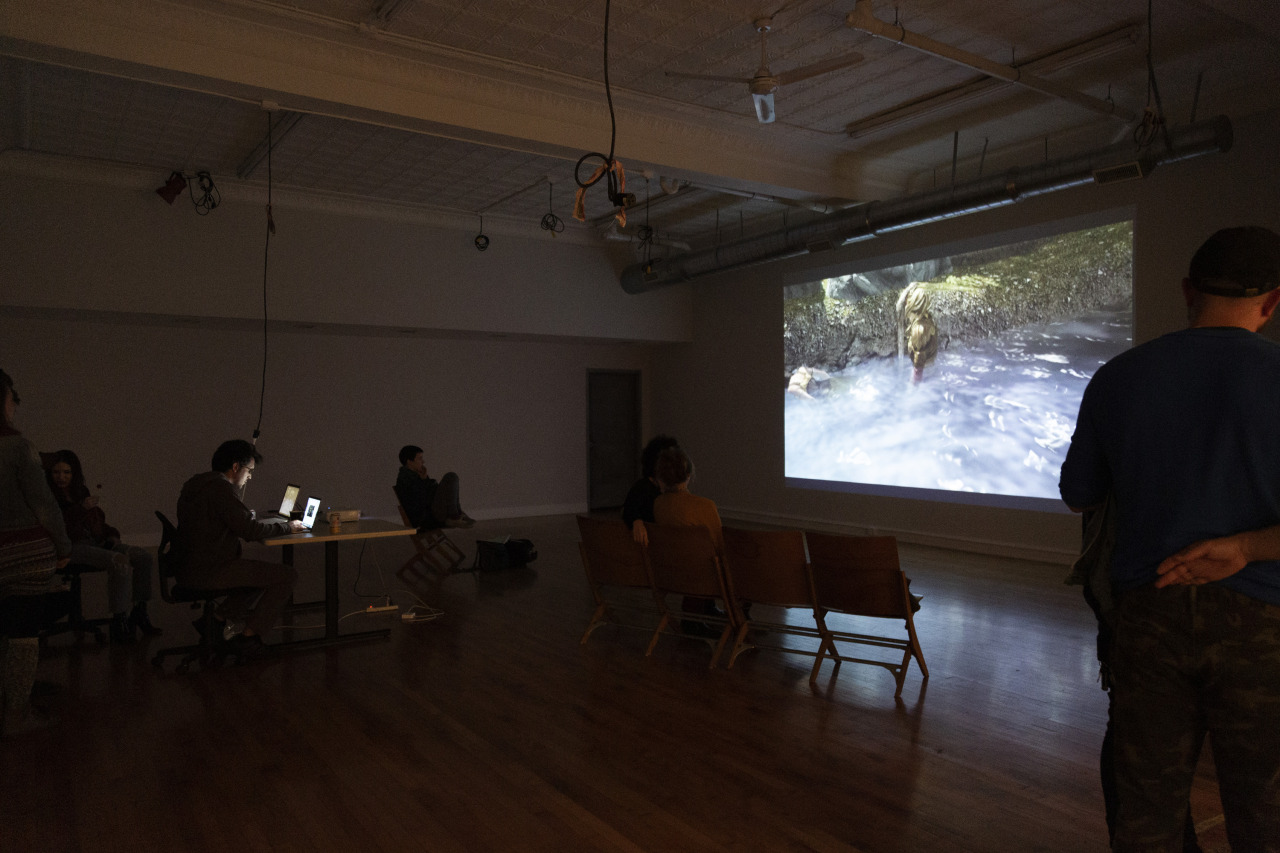Augurhythms, Hesse Flatow, New York
curated by Fragile Institute
August 2022
PLAN, Azkuna Zentroa, Bilbao Spain
curated by Karlos Martinez
September 2021
Performance // Proxy limited performance series
curated by RF Curatorial
October 2019
Intimacy Mod Live was a series of live-streamed performances involving the artist-as-Player Character. Taking requests from viewers in the gallery via the chat, the performances consisted of two avatars engaged in the mod “Immersive Lover’s Comfort” by flexcreator, conjoining the two at the mouth and relying on rag-doll physics to contort into impossible and violent embraces. These performances posit the question: does mediation through digital space take us further from human experience, or closer? Does removal of the real body take along with it our sense of humanity, or does it release us? Perhaps in the absence of a real body, an entirely new language of performance can occur; an alternative mode of expression not tied to physical identities. With that in mind, does intimacy, desire, sexuality, and longing still translate?

(FREE)
Despite the recent dive in popularity, Bethesda Games has had a lasting presence in the gaming community, most notably with their open-minded stance on game modification, known as modding. By modding games like Skyrim, fan interest has been self-sustaining in the years since the title’s 2012 release. In 2015, the video game digital distribution service Steam rolled out the “Skyrim Workshop”, placing 19 popular mods behind a paywall, allowing Steam and its parent company Valve to take 75% of the profits from each mod sold. This sparked immediate pushback from the modding community, and even spurred the creation of a small weapon mod in the shape of a protest sign, which read “free the mods”. One could brandish the sign in-game, although its mere presence on the modding distribution site was proof enough of the general dissent. The Skyrim Workshop was short-lived, and within months all purchases were refunded.


(T9)
You remember thinking, “I wish I could speak words outside of language.” When ineffable could not begin to quantify even the outward edges, you remember wanting to sing a song without a voice. Your voice was too small then, as it is now, and what you found was speaking through your fingertips on a touchpad that lit up in the dark of the room: “4 4624463 968 275464 9428 69 66884 3637 263 4 267937 9484 7663663 357317 86423 7663663 357317 2639 263 93 5477 367 2 5664 8463.” With this you could create a world.



(WORLDLESS)
In a dream I was a bodiless entity floating around a bootleg version of SecondLife. In another dream I was the woman Žižek wrote about when he said “the fantasy forms the core of her being, that which is in her more than herself.” In a third and final dream I fell for hours in the dark. On this earth we are a conduit, a shell, a diadem, a sign, and I grew up climbing about the carpeted altar of God. The Bible could tell us in numerous ways:
“If we find ourselves with a desire that nothing in this world can satisfy, the most probable explanation is that we were made for another world.” It was C.S. Lewis who expressed it that way. If you sense a fluttering beneath the surface, simply wait for the next plane. If desire is an instinct of the body, to resist it is the purpose of the soul. What is that feeling? Where does one put desire? The answer: ship it away, but not just anywhere, send it to a cloud, a server, an undisclosed location unhinged from this world or partially stuck in the next.



[text excerpted from the essay Intimacy Mod for Daily Rush Season 3: Proxy, The Museum of Contemporary Art Detroit.]